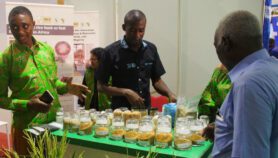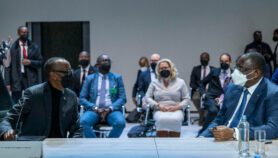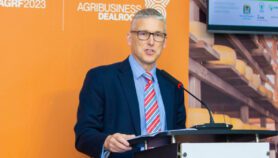Send to a friend
The details you provide on this page will not be used to send unsolicited email, and will not be sold to a 3rd party. See privacy policy.
[CAPE TOWN] South Africa’s science minister, Naledi Pandor, has called for increased efforts by African nations to build both a greater ability to carry out research relevant to their specific health challenges, and the capacity to put such research to use.
"It is essential that African researchers become involved in finding solutions for the problems of Africa," Pandor told the opening of Forum 2012, a three-day meeting on health research which opened in Cape Town yesterday (24 April).
She made explicit reference to Africa’s reliance on drugs and other tools discovered and developed outside the continent, and urged that "African-led innovation should be applied to address African health needs".
Forum 2012 is an international meeting being held under the title ‘Beyond Aid’, which identifies research and innovation as "key drivers for health, equity and development".
The meeting has been organised by the Geneva-based Coalition on Health Research for Development (COHRED), which merged at the beginning of last year with the Global Forum on Health Research.
This week’s meeting is the successor to a series of bi-annual meetings on health research that were organised in the past by the Global Forum.
These previous meetings tended to focus on the uneven allocation of resources for health research between developed and developed nations.
In contrast, according to Carel Ijsselmuiden, executive director of COHRED, the main priority now is to explore steps that developing countries need to take so that they both produce and implement their own research, and develop products that can compete in global markets.
"This is particularly important at a time when the aid agenda is changing, with declining aid budgets from traditional donor agencies, and an increasing role being played by emerging economies, such as those belonging to the BRICS group [Brazil, Russia, India, China] of countries," Ijsselmuiden told the opening session of the Cape Town meeting.
He pointed out, for example, that a recent report on the impact of sequencing of the human genome had demonstrated that the potential economic return on the initial investment had gone to the global North, rather than the South, where there was no capacity to build on knowledge produced by the project.
"The South has to develop the capacity to compete in this type of domain," said Ijsselmuiden. "The continuing emphasis on aid may stop us seeing this new picture of the world that is emerging."
Pandor endorsed those comments, noting that South African scientists are actively engaged in new research in areas ranging from gene therapy to tissue engineering.
"But such work will only prove useful if we can develop strategic mechanisms aimed at turning fundamental research findings into innovative treatments," she said.
At a press conference after the opening session, Bongani Mayosi, chair of South Africa’s National Health Research Committee, said that a significant amount of health-related research was being carried out in the country. But it was not being turned into either products or treatments in a systematic way.
"There is no formal mechanism to ensure that the research coming out from clinical trials, for example, translates into the treatment of diseases," Mayosi said, adding that research results were not being fully utilised to inform evidence-based policy-making.
For dedicated coverage of the Forum 2012 meeting, visit our live blog.













